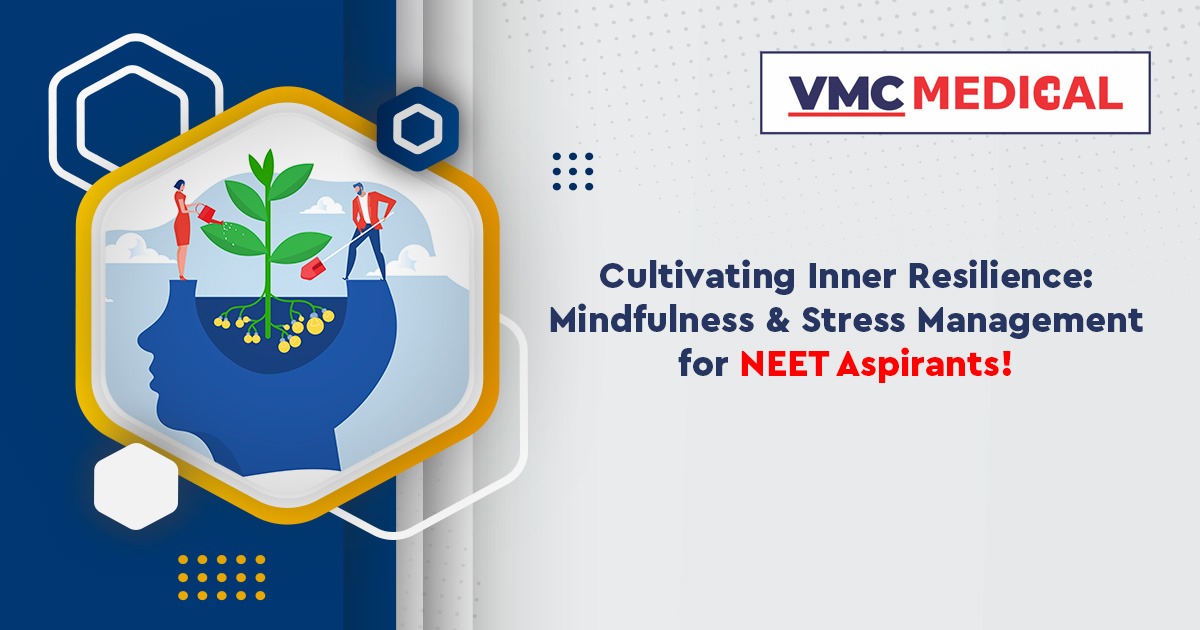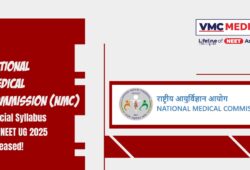Cultivating Inner Resilience: Mindfulness and Stress Management for NEET Aspirants!
 Posted On
Posted On
548 total views, 1 views today
The journey of preparing for the National Eligibility cum Entrance Test (NEET) is an arduous one, often filled with stress, pressure, and intense competition. Aspirants invest years of hard work and dedication to achieve their dreams of becoming medical professionals. However, the stress and anxiety associated with NEET preparation can take a toll on both physical and mental well-being. In this blog, we will explore the power of mindfulness and stress management techniques to help NEET aspirants cultivate inner resilience and enhance their overall well-being throughout this demanding journey.

Understanding the Impact of Stress on NEET Aspirants:
The NEET preparation phase can be extremely challenging due to the high stakes involved and the intense competition. This pressure can lead to various stress-related issues, such as anxiety, lack of focus, sleep disturbances, and even burnout. It is crucial for aspirants to recognize the signs of stress and take proactive steps to manage it effectively.
The Power of Mindfulness in NEET Preparation:
Bringing one’s attention to the present moment without passing judgment is a key component of the potent practice of mindfulness. By adopting mindfulness techniques, NEET aspirants can gain greater self-awareness and develop the ability to handle stress more effectively. Some mindfulness techniques that can benefit aspirants include:
- Breathing Exercises: Simple breathing exercises can help aspirants relax and calm their minds during stressful moments. Techniques like deep breathing, box breathing, and diaphragmatic breathing can be easily incorporated into their daily routine.
- Meditation: Regular meditation practice can help NEET aspirants improve focus, reduce anxiety, and enhance overall well-being. Each day, even just a few minutes of meditation can have a big impact.
- Mindful Study: By bringing mindfulness to their study sessions, aspirants can enhance their concentration and comprehension. Engaging in one task at a time and being fully present in the moment can improve learning efficiency.
- Mindful Walking: Going for mindful walks in nature can be rejuvenating and relieve stress. Paying attention to the sensations of each step and being present in the environment can provide a much-needed mental break.
Stress Management Techniques for NEET Aspirants:
Apart from mindfulness, there are various stress management techniques that NEET aspirants can incorporate into their daily lives to build resilience and cope with the challenges they face:
- Time Management: Creating a well-structured study schedule can help aspirants manage their time efficiently, avoid last-minute cramming, and reduce unnecessary stress.
- Regular Physical Activity: Engaging in regular physical exercise is an excellent way to release pent-up stress and boost overall well-being. Whether it’s a brisk walk, yoga, or any other form of exercise, physical activity can have a positive impact on mental health.
- Healthy Diet: A balanced and nutritious diet plays a vital role in maintaining both physical and mental health. Avoiding excessive caffeine, sugar, and junk food can help stabilize moods and energy levels.
- Social Support: Connecting with family, friends, or support groups can provide a sense of belonging and comfort during stressful times. Talking about one’s feelings and experiences can be cathartic and reduce emotional burden.
- Rest and Sleep: Proper rest and sleep are essential for cognitive function and memory consolidation. NEET aspirants should prioritize getting adequate sleep each night to perform at their best during study sessions and exams.
Final Thoughts:
Preparing for the NEET exam is undoubtedly a challenging and stressful journey, but by incorporating mindfulness and stress management techniques into their daily routine, aspirants can develop inner resilience and cope with the demands more effectively. Mindfulness practices enable aspirants to be fully present and focused during their studies, while stress management techniques offer valuable tools to manage the pressures of NEET preparation. By nurturing their physical and mental well-being, NEET aspirants can not only improve their chances of success in the exam but also foster long-lasting habits that will benefit them throughout their medical careers. Remember, self-care and well-being are as crucial as academic excellence on this path to achieving the dream of becoming a medical professional.




